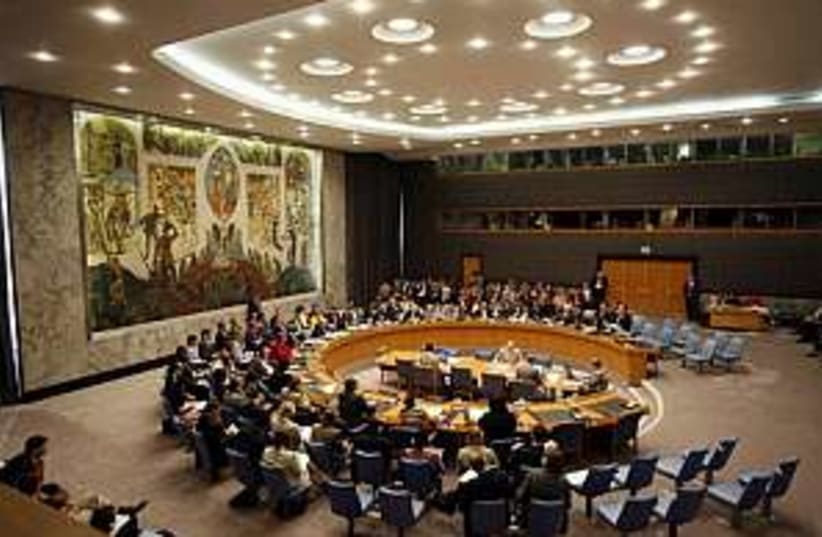| THE IRANIAN THREAT | |
| JPost.com special: news, opinion, blogs and more |
UNSC to take action on Iran sanctions
Along with Germany, will compose resolution - but negotiations still an option.


| THE IRANIAN THREAT | |
| JPost.com special: news, opinion, blogs and more |